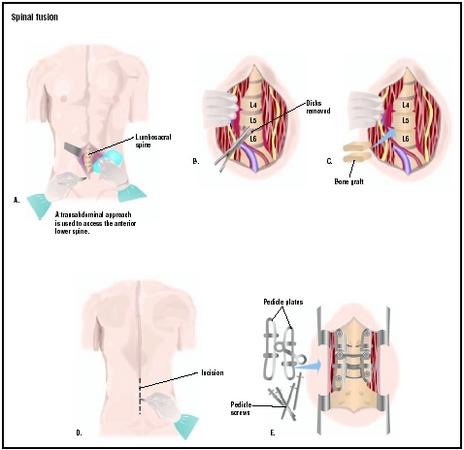
It’s amazing how much evidence there is that fusions don’t work, yet surgeons do them anyway,” said Sohail Mirza, a spine surgeon who chairs the Department of Orthopaedics at Dartmouth Medical School in Hanover, New Hampshire. “The only one who isn’t benefitting from the equation is the patient.
British and Norwegian researchers found fusion no better than physical therapy for disc-related pain in three studies, totaling 473 patients, published in the journals Spine, Pain and the British Medical Journal between 2003 and 2006. A 2001 Swedish study of 294 patients in Spine found fusion better than physical therapy that was less structured than the kinds used in the other studies.
Rates of complications from surgery in three of the European studies -- including bleeding, blood clots, and infections -- were as high as 18 percent. None reported complications from physical therapy. The four studies are cited in journals as the only head-to-head, randomized comparisons between the two treatments.
In a U.S. study in Spine in 2007, surgeons reported fusion was successful in only 41 percent of 75 patients suffering from lower-back disc degeneration. Success measures included pain reduction. Two years earlier in the same journal, surgeons found a 47 percent success rate among 99 patients, 80 percent of which were taking narcotics for pain two years later. Both studies compared fusion to artificial disc replacement in trials submitted to the FDA.
The Blommburg article, from which this information was taken, is quite extensive and has many personal examples of how this surgery has not helped people, but ruined their lives. In my practice, I have seen both sides of this issue. I have clients who have undergone the surgery and have had a good result and I have had clients have a bad result and have to return to the surgical table and ultimately, be diagnosed with failed back syndrome.
If you are contemplating undergoing this type of surgery, please consider all of the factors. Also, always obtain a second opinion. If this is a Pennsylvania workers' compensation injury, you would have a right to a second opinion that the insurance company would have to pay for.
